What are the main causes of insomnia?
Insomnia can have various underlying causes, including:
- Stress
- Anxiety
- Depression
- Chronic pain
- Medical conditions (e.g., asthma, acid reflux)
- Medications
- Caffeine or stimulant use
- Irregular sleep schedule, and poor sleep habits.
Identifying and addressing the root cause is crucial for effective treatment.
What to do to fight insomnia?
What can you do to fight insomnia? How to improve & ensure yourself quality sleep? Here are a few things you can do to get rid of insomnia.
Wake up at the same time each day
It is tempting to sleep late on weekends, especially if you have had poor sleep during the week. However, if you suffer from insomnia you should get up at the same time every day in order to train your body to wake at a consistent time.
Eliminate alcohol and stimulants like nicotine and caffeine

The effects of caffeine can last for several hours, perhaps up to 24 hours, so the chances of it affecting sleep are significant. Caffeine may not only cause difficulty initiating sleep, but may also cause frequent awakenings. Alcohol may help you with sleep and may have a sedative effect for the first few hours following consumption, but it can then lead to frequent arousal and a non-restful night’s sleep. If you are on medications that act as stimulants, such as decongestants or asthma inhalers, ask your doctor when they should best be taken to help minimise any affect on sleep.
Limit naps
While napping seems like a proper way to catch up on missed sleep, it is not always so. It is important to establish and maintain a regular sleep pattern and train oneself to associate sleep with cues like darkness and a consistent bedtime. Napping can affect the quality of nighttime sleep – not to mention hypersomnia disorder.
Exercise regularly
Regular exercise can improve sleep quality and duration. However, exercising immediately before bedtime can have a stimulant effect on the body and should be avoided. Try to finish exercising at least three hours before you plan to retire for the night.
Limit activities in bed
The bed is for sleeping and having sex and that’s it. If you suffer from insomnia, do not balance the checkbook, study, or make phone calls, for example, while in bed or even in the bedroom, and avoid watching television or listening to the radio. All these activities can increase alertness and make it difficult to fall asleep.
Do not eat or drink right before going to bed
Eating a late dinner or snacking before going to bed can activate the digestive system and keep you up. If you suffer from gastroesophageal reflux or heartburn, it is even more important to avoid eating and drinking right before bed since this can make your symptoms worse. In addition, drinking a lot of fluids prior to bed can overwhelm the bladder, requiring frequent visits to the bathroom that disturb your sleep.
Make your sleeping environment comfortable
Temperature, lighting, and noise should be controlled to make the bedroom conducive to falling (and staying) asleep. In addition, you can spray your Lavander Sleep Spray to improve your overall sleep quality. Your bed should feel comfortable and if you have a pet that sleeps in the room with you, consider having the pet sleep somewhere else if it tends to make noise in the night.
Choose the right beddings
Choosing a mattress or a pillow can mean a world to the quality of sleep. Some people prefer comfort of memory foam; others will feel it's too hot to sleep on. Some people prefer support of coil mattresses, others will find it too rigid for comfort. It boils down to the individual preferences, and choosing the right mattress will help you reach the comfort level sufficient for sleeping.
Get all your worrying over with before you go to bed
If you find you lay in bed thinking about tomorrow, consider setting aside a period of time — perhaps after dinner – to review the day and to make plans for the next day. The goal is to avoid doing these things while trying to fall asleep. It is also useful to make a list of, say, work-related tasks for the next day before leaving work. That, at least, eliminates one set of concerns.
Reduce stress
Stress and poor sleep are connected more than we think and therefore it is highly important to reduce your stress levels to the minimum. There are a number of relaxation therapies and stress reduction methods you may want to try to relax the mind and the body before going to bed. Examples include progressive muscle relaxation (perhaps with audio tapes), deep breathing techniques, imagery, meditation, and biofeedback.
Consider participating in cognitive therapy
Cognitive therapy helps some people with insomnia identify and correct inappropriate thoughts and beliefs that may contribute to insomnia. In addition, cognitive therapy can give you the proper information about sleep norms, age-related sleep changes, and help set reasonable sleep goals, among other things.
Products and activities that could help
You must be asking yourself: what can I do to beat the insomnia? There are a few things that could help you out.
Bodyism serenity
This night-time milkshake is designed to send you straight off to sleep. About an hour before bed, whisk one scoop of this powdered blend of chamomile, hops, oats, liquorices root and rosemary into a glass of milk and drink. The ingredients reduce the body’s anxiety levels and increase your sense of calm.

Aromatherapy
Associates Deep Relax bath and shower oil Fragranced with vetivert, chamomile and sandalwood, this oil is often described as being “better than sleeping pills”. Simply add to your bath or apply to the skin in the shower. Or add a few drops to a hanky and place inside your pillowcase.
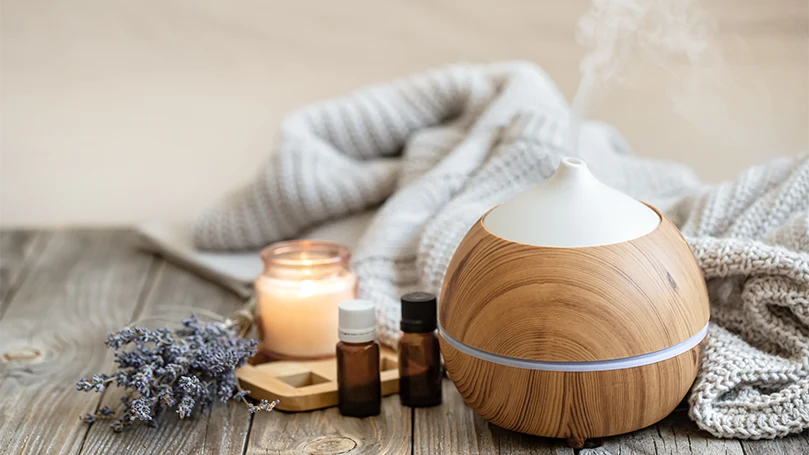
Valerian
No one wants to become dependent on pills, but valerian is a herbal sedative that has been shown to help you get to sleep faster and enjoy a better quality of sleep. Avoid alcohol when taking valerian, and don’t use it long-term.
Hypnosleep
A downloadable podcast to play when you’re in bed and ready to sleep, Hypnosleep is the brainchild of hypnotherapist Tim Smale, who helped Alastair Campbell get into the right frame of mind to train for his long charity runs.
Sound asleep pillow
If you want to listen to your headphones but find them uncomfortable when you get your head down, this pillow contains a speaker that won't disturb anyone around you. Listen to a meditation track, an audio book or white noise.
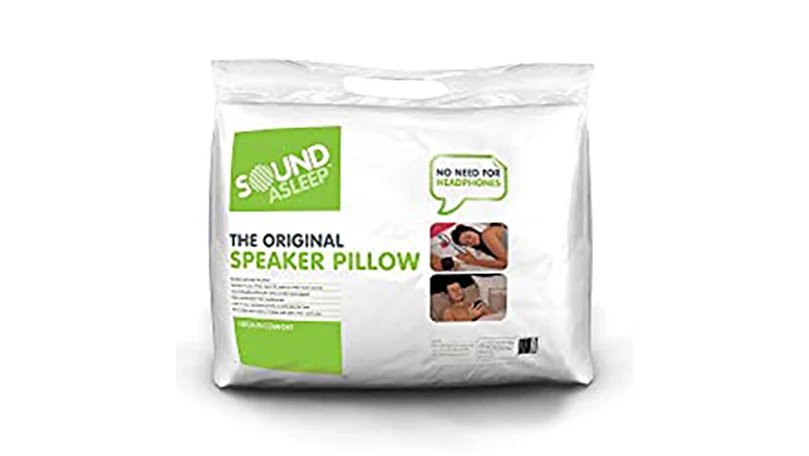
Fitbit Flex
This wristband not only measures how much activity you’re doing over the day, but also tracks your sleep patterns at night by recording your movements and your pulse rate. It plugs into your computer’s USB port to enable you to see how much shut-eye you’re actually getting. The FitBit Flex also has a silent vibrate alarm, which means you can wake up without waking a dozing partner.
Combination therapy
A mixture of acupuncture, massage and hypnotherapy designed to help lower the body’s levels of cortisol – a hormone produced when the body is under stress.
Yoga
There are at least 10 asanas (body positions) in yoga that tackle sleeplessness. Online tutorials show you everything from forward bends and gentle spinal twists to lying with your legs up the wall.
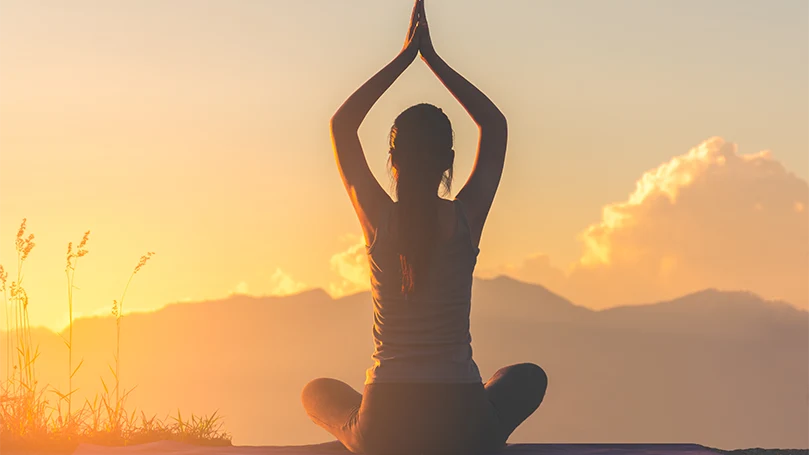
Meditation
Many techniques for triumphing over sleeplessness revolve around quieting the mind and slowing the heart rate. Meditation is no different and asks us to bring our attention to our breath rather than obsessing about our lack of sleep.
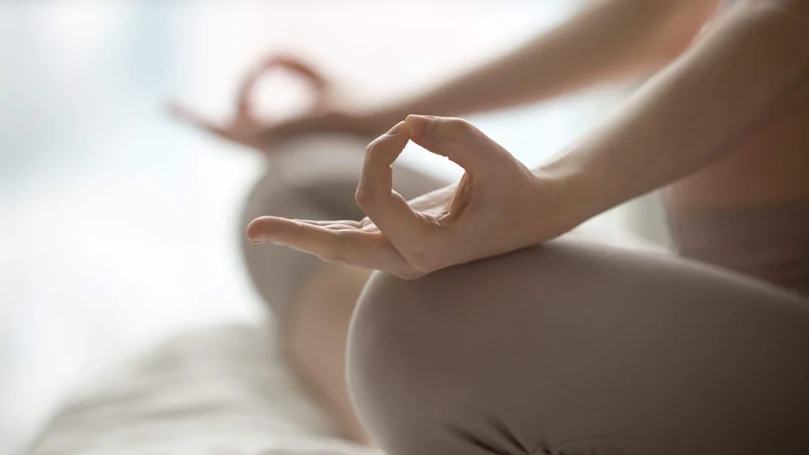
Conclusion
Insomnia is very frequent problem in life of modern people. Almost 1/3 of British people has trouble to fall asleep at night and almost every woman that gave a birth often suffers from postpartum insomnia. There are many different causes for insomnia, including stress, overthinking, overworking and many other forms of overindulgence. Luckily, no matter the reason, there are universal ways to fight insomnia, usually related to organising your life better and administrating some helpful activities and therapies.
Spread the word
FAQs about insomnia
If you experience persistent sleep difficulties for more than three nights a week for at least three months, it is advisable to seek professional help. Additionally, if your insomnia significantly impacts your daily life, work performance, or overall well-being, it is essential to consult a healthcare provider or sleep specialist.
There are several non-medical strategies you can try to manage insomnia:
a) Establishing a consistent sleep schedule
b) Creating a relaxing bedtime routine
c) Avoiding stimulants (caffeine, nicotine) close to bedtime
d) Limiting screen time before sleep
e) Creating a comfortable sleep environment (cool, dark, and quiet)
f) Regular exercise (but not too close to bedtime)
g) Managing stress and anxiety through relaxation techniques (e.g., meditation, deep breathing)
Insomnia can be treated using various approaches, both non-pharmacological and pharmacological, depending on the severity and underlying causes.
Non-pharmacological treatments include cognitive-behavioral therapy for insomnia (CBT-I), which focuses on changing sleep-related behaviors and thoughts. Medications, such as sedative-hypnotics or melatonin agonists, might be prescribed in some cases, but they are typically used for short-term treatment due to the risk of dependency. It's essential to work closely with a healthcare professional to determine the most appropriate treatment plan for your specific case.

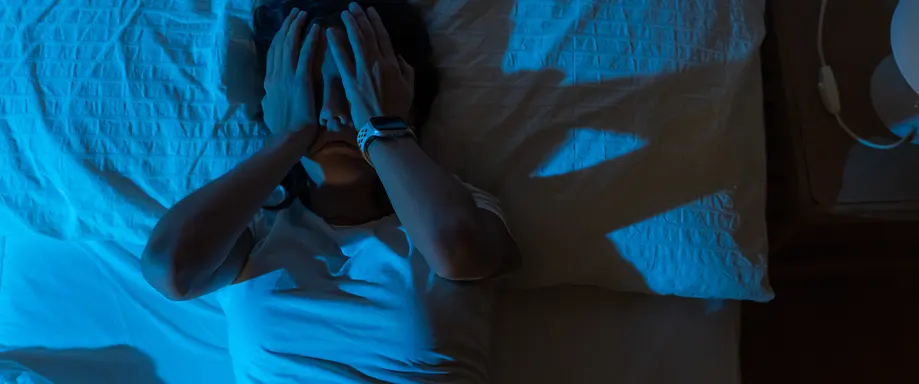
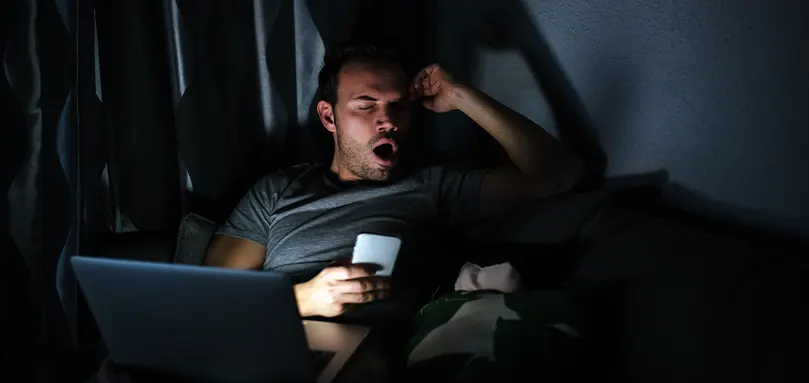












There are no comments yet
"*" indicates required fields